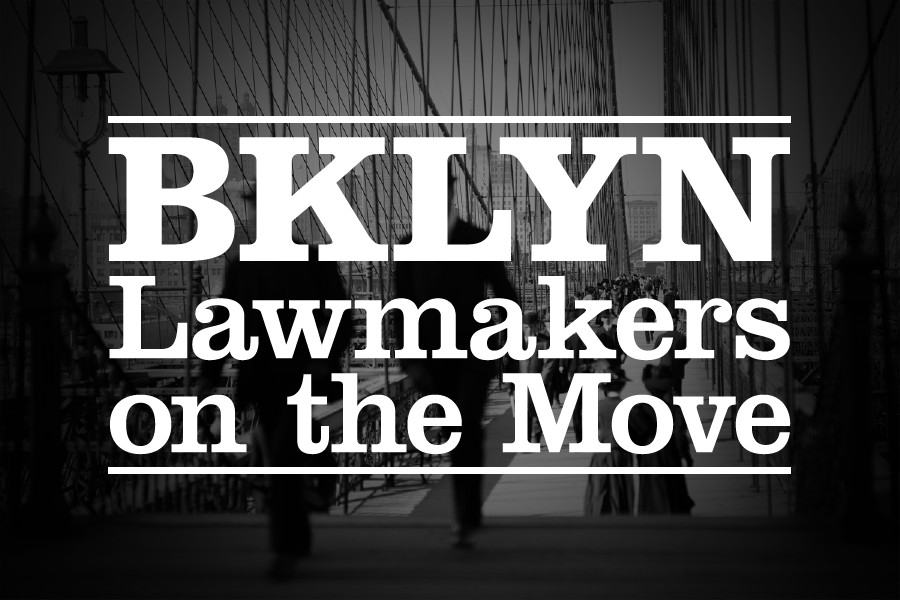Harris Supports Paid Family Leave Legislation
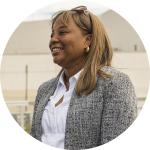
Coney Island, Bay Ridge Assembly Member Pam Harris yesterday announced her support for Paid Family Leave legislation, which passed the assembly yesterday.
The bill, which Harris co-sponsored, would require private employers to provide a paid family leave benefit, with workers contributing up to 45 cents per week to the policy. This would ensure up to 12 weeks of paid family leave, cover two-thirds of the worker’s salary and guarantee job security during the absence.
Currently, the federal Family and Medical Leave Act guarantees some workers 12 weeks of time off without fear of getting fired. However, almost half of workers who qualify do not take the leave due to financial reasons. The law does not require an employer to pay an employee for time off. Additionally, only about 12 percent of workers in the private sector and 5 percent of the lowest-paid workers have paid family leave.
“Welcoming a newborn child or caring for a sick family member – these are the times when our families need us most,” said Harris. “Taking care of our families shouldn’t mean risking a job or financial security. I’m making it a priority to put the voices of our families first, and I call on the state Senate to pass paid family leave and help make our state a family-friendly place to work.”
Donovan Requests CDC Plans To Address Lack Of Zika Virus Tests
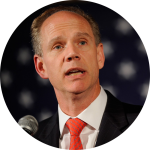
Southern Brooklyn/Staten Island Congressman Dan Donovan yesterday requested plans from the U.S. Centers for Disease Control (CDC) to address the lack of available tests for the Zika virus following the World Health Organization declaring the virus an international emergency.
The disease is spread through mosquitos, and health officials believe the outbreak originated in Brazil. While Zika is usually accompanied with mild symptoms, it may be associated with birth defects in children born from infected mothers. The CDC issued travel advisories to regions with a high risk of Zika transmission, mostly in Central and South America.
Zika virus has been confirmed in three New York City patients, and New York is one of four states, plus the CDC, with laboratories capable of testing for Zika.
“The CDC is the most capable public health organization on the planet. Still, this obscure disease did not threaten the public’s health in any meaningful way until now, and the public has a right to know: Does the government have sufficient capacity to handle increased demand for diagnostic tests? If not, then what does the CDC need from Congress to adequately protect the public’s health?” said Donovan.
In a letter to the CDC, Donovan wrote, “Given the freedom and frequency of travel within the United States, the presence of a diagnostic laboratory in one state will likely have little impact on that state’s ability to identify and contain Zika victims. I would like to know what steps your agency is taking to increase the capacity of the public health system to test for Zika.
“Additionally, I respectfully request that you provide my office with information pertaining to the CDC’s long-term plan for working with state and local health officials to track patient outcomes for pregnant women and their infants who have been exposed to the virus.”
Mosley, Bichotte Issue Statement On African-American History Month
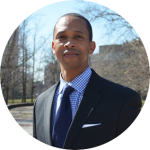
Assembly Members Walter T. Mosley (Fort Greene, Clinton Hill, Prospect heights, Crown Heights) and Rodneyse Bichotte (Midwood, Ditmas Park, Flatbush) issued the following identical abridged statements noting how African American History Month is a time to reflect on our nation’s history and celebrate contributions of African Americans:
“For over 35 years, February has served as African American History Month. As a nation, we celebrate the accomplishments of influential people of color such as Harriet Tubman, who worked tirelessly leading slaves to freedom using the Underground Railroad, and Dr. Martin Luther King, Jr., who fought against racial intolerance and segregation. The strength and courage they showed in the face of appalling discrimination is truly an inspiration.
“While these historical figures still inspire us, African Americans today continue to break down barriers and make history. Nearly eight years ago, President Barack Obama became the first African-American man to be elected President of the United States. As his presidency comes to an end, the legacy he leaves behind will continue to inspire future generations.
“New York State, in particular, has played a significant role in black history. In 1838, James Weeks bought a plot of land in Brooklyn that became one of America’s first free black communities. The neighborhood of Weeksville (in Brooklyn) was home to many freed slaves from the south and at its height was home to 700 families.
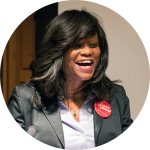
“Our state also served as home to many prominent black history icons. Born in Brooklyn, Shirley Chisholm served as a member of the New York State Assembly until 1968. She then became the first black woman elected to Congress and went on to be the first female African-American candidate to run for president in 1972. A Harlem native, Colin Powell became the United States’ first African-American Secretary of State in 2001. Liberation leaders such as Marcus Garvey and Malcolm X both lived and worked in New York.
“Throughout our nation’s history, we have seen African Americans rise, breaking through barriers that limited freedom, education and wealth. African American History Month is a time to honor that perseverance and strength. As we celebrate this year, it’s important to recognize that the fight for equality is not over. New York will continue to lead the way to ensure justice and equality for all.”
Colton Encourages Residents To Apply For Election Day Work
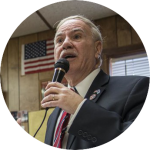
Bath Beach/Bensonhurst Assembly Member William Colton is encouraging local residents of southwest Brooklyn become more involved in the nation’s political process and to apply to become election day workers with the Board of Elections.
There are a number of different positions available for those who want to work on Election Day at the polls. These positions are paid and available through the New York City Board of Elections, he said.
Depending on availability, poll workers may be assigned to function as an Inspector, Poll Clerk, Information Clerk or Accessibility Clerk. Other workers at the polls on Election Day include interpreters (who are fluent in Spanish or Chinese), and door clerks.
“It is extremely important that local residents are involved in our community and our nation’s election process. As citizens of the United States, we have a duty to support our democracy. Democracy only works when many diverse groups of people are involved and engaged in our government and political system. Our county was founded on the values of equality, liberty ,and justice, and these are the same principles that we must continue to strive for in our everyday lives, including in our electoral process. When people become involved in civic and political affairs, they are helping to ensure that American democratic principles are sustained,” said Colton.
Additionally, Colton recently has introduced/sponsored legislation to increase the pay for poll workers. Colton believes that this will help recruit more qualified applicants to work at the polls. He also has introduced/sponsored legislation to provide ballots and documents at the polls in the Russian language so that those American citizens who are registered to vote and who speak Russian can participate in our democratic election process fully and more easily.
Poll workers (inspectors, poll clerks, information clerks, and accessibility clerks), earn a salary for $200 for working each Election Day, and an additional $100 for attending a 6-hour training class and passing the required exam.
Interpreters and door clerks earn a salary of $200 for working on each Election Day and an additional $25 for attending a training class and passing the required exam.
Furthermore, if a poll worker works two or more Election Days in an election cycle, one will receive an additional bonus pay of $25.00.
Since there will be four elections this year, the Presidential Primary (in April), the Federal Primary (in June), the State/Local Primary (in September), and the General Election (in November), one can earn a total of $925 this year by working as a poll worker in 2016.
The dates for the 2016 elections are:
Tuesday, April 19, 2016 – Presidential Primary Election Day
Tuesday, June 28, 2016 – Federal Office Primary Election Day
Tuesday, September 13, 2016 – State/Local Primary Election Day
Tuesday, November 8, 2016 – General Election Day
Qualifications for poll workers:
To apply to work as a poll worker (as an inspector, poll clerk, or information clerk), one must be a registered voter in the City of New York (so one must be at least 18 years of age and a U.S. citizen who permanently resides in New York City’s five boroughs).
To apply to work as a poll worker (accessibility clerk) one must be a permanent U.S. resident, New York City resident, and at least 18 years of age.
To work as an interpreter, one must be a permanent resident of the United States, a New York City resident, 18 years old or older, and fluent in both English and the interpreter’s language (Spanish or Chinese).
All who meet the requirements for employment are encouraged to apply.
To apply for a poll worker position, please visit the United Progressive Democratic Club, 29 Bay 25th Street (between 86th Street and Benson Avenue) from 6-8 p.m. on anyWednesday evening


